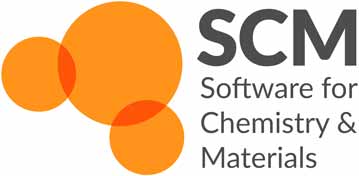
The Netherlands
De Boelelaan 1083
1081 HV Amsterdam
Software for Chemistry & Materials B.V. (SCM) is an Amsterdam-based computational chemistry software company. Originally spinning out from the Vrije Universiteit as Scientific Computing & Modelling NV in 1995, the SCM team supports and develops the Amsterdam Modeling Suite, centered around the flagship program Amsterdam Density Functional (ADF), which was originally developed in the 1970s in the theoretical chemistry department.
Over a 160 authors have contributed to our software. SCM is now a thriving private company collaborating with large companies and academic development groups around the world, and participating in many EU projects as well as national ones. SCM’s powerful computational chemistry tools are used by seasoned theoreticians as well as experimental researchers. Our customers are active in academia, government labs and industry studying various fields of chemistry and materials science.
Our heart is in Amsterdam. Our people are global citizens. All our software developers have a background in computational physics or theoretical chemistry (most with a PhD), and have years of experience in applying and developing new computational chemistry software.
SCM leads WP1, „Scale-specific models for high-throughput processes“ and hosts two DCs focused on the development of ML-based description of potential energy surfaces and improvements in the accuracy of solubility and solution free energy predictions.
Likewise, the company will act as secondment host and providing mentorship to DCs from other institutions (DTU, ZHAW).
SCM will also host Training Unit 2, on applied research training.

“As a scientific software company, our mission is to bring the latest modelling methods to the community of materials researchers. PREDICTOR will help us develop advanced methods for faster and more accurate modelling of electrolytes, methods that we will disseminate as user-friendly software among materials modellers. In particular researchers of redox flow batteries as environmentally friendly, low-cost solutions for renewable energy storage.”
Dr. Stan van Gisbergen, CEO
